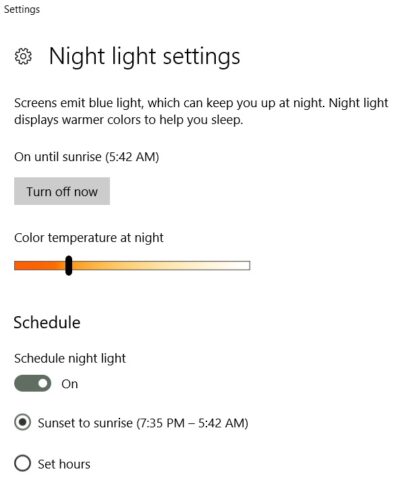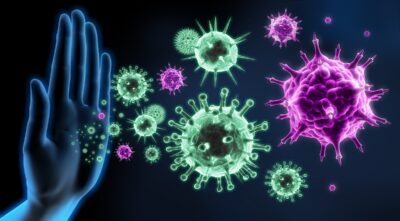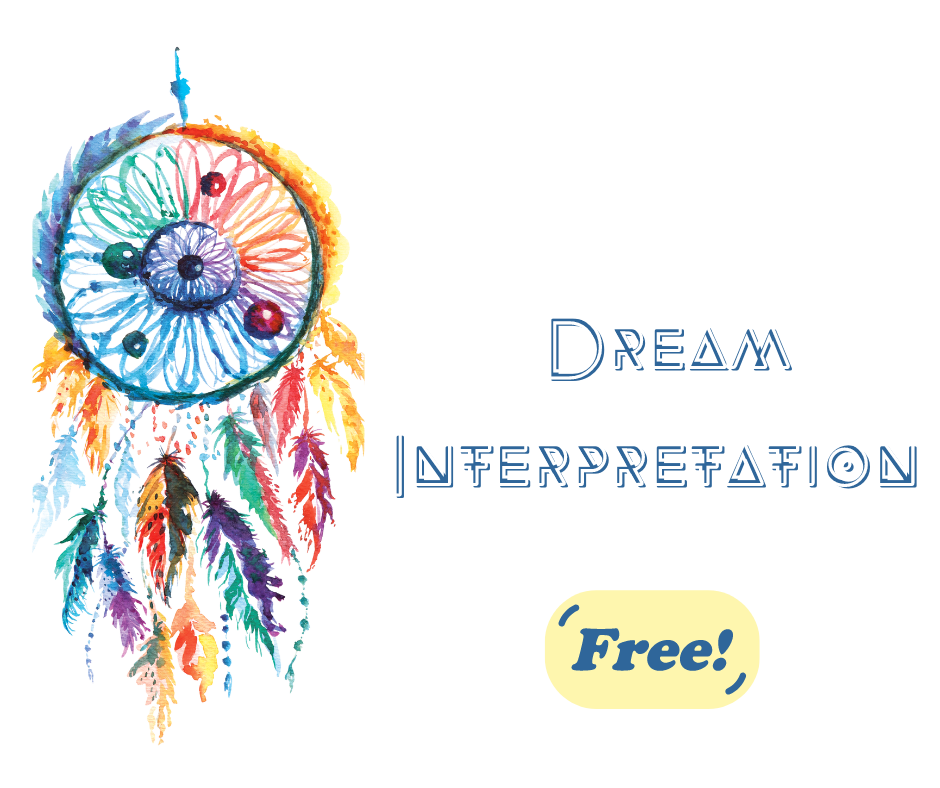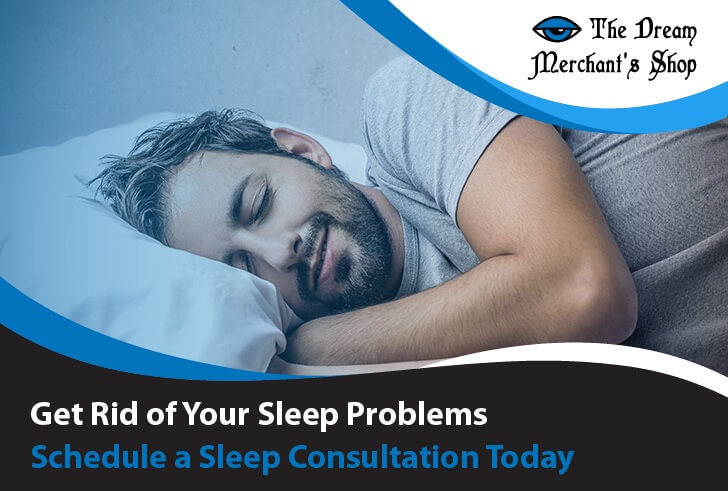Sleep hygiene is a list of guidelines scientifically proven to improve sleep.
Sleep can be influenced by many factors, such as:
- What you do during daytime
- What you eat and drink
- Your bedroom’s atmosphere
By doing your best to follow these simple sleep hygiene tips, your sleep will become so much better, and therefore you will feel better during the day as well.
Why not give it a try?
Whether you’re currently happy with the quality of your sleep or not, there’s always room to improve.
If you don’t feel refreshed after a night’s sleep, then the first thing to try before heading to a sleep specialist are these principles of sleep hygiene.
The sleep hygiene practices are based on taking into consideration lifestyle (diet, exercise, substance use) and environmental factors (light, noise, temperature) that may either interfere with or promote better sleep.
It could also include general advice on how to facilitate sleep better, such as allowing enough time to relax before your bedtime and maintaining a regular sleep schedule.
Test yourself and see how many of the below sleep hygiene guidelines you already incorporate to your schedule and how many of them not yet.
Avoid stimulants (e.g., caffeine, nicotine) for several hours before bedtime
Caffeine and nicotine are stimulants. Therefore, no surprise they cause trouble sleeping.
Caffeine
When designing your daily schedule, keep in mind that caffeine takes about 1 hour to kick in and that its duration of action is 3-4 hours.
Caffeine use significantly disturbs sleep in susceptible persons.
It would be wise therefore to avoid drinking coffee in the late afternoon or evening hours. Try to have your last caffeinated beverage at least 5 hours before you intend to go to sleep.
Additionally, try to drink not more than 3 cups of coffee per day.
And remember, caffeine exists in other places besides coffee. Tea, some soft and energy drinks and chocolate also contain caffeine. The only caffeinated beverage I would drink after sunset is white or green tea.

Nicotine
Regarding nicotine, when it is smoked, its onset is within seconds. The half-life of nicotine is 1-2 hours and while its primary effects last 10-45 minutes, it may take 2 hours for it to really wear off.
Nicotine dependency may cause nocturnal awakenings.
I seriously suggest that you quit smoking if you are currently a smoker, but if you must smoke, take your last cigarette at least 2 hours before your bedtime.
Avoid alcohol and marijuana around bedtime because they fragment sleep
Alcohol
With alcohol, it is less obvious why you should avoid it before bed. On the contrary, many people think it’s a sleep aid.
But it’s far from that.
Alcohol does have a sleep-inducing effect, however it often promotes sleep disturbance as the night progresses.
While low doses of alcohol don’t seem to cause any noticeable effects on sleep, drinking larger amounts before going to sleep causes an increase in the deeper stages of sleep while suppressing REM sleep.
REM sleep is the stage of sleep where most dreams occur.
By the end of the night, the effect wanes and a REM rebound occurs where you may experience an increase in REM sleep. This may be accompanied by intense (albeit difficult to remember) dreams in the early morning hours after a drinking night.
Alcohol causes your sleep to be more broken and less refreshing than normal.
Alcohol use may also intensify snoring and obstructive sleep apnea, contribute to insomnia, and produce long-lasting changes in sleep patterns.
When and how much should you drink to avoid any adverse effects on your sleep?
Drinking just 1-2 drinks might not cause any problems at all. But if you drink more than that, try to do so at least 4 hours before your bed time.
A glass of wine with dinner will likely not be an issue.
Marijuana/Cannabis
Ingesting marijuana (specifically THC) causes minimal sleep disruption. It is characterizing by a slight reduction of REM sleep.
Chronic THC ingestion causes a long-term suppression of slow-wave sleep.
If the quality of your sleep matters to you, try to avoid using cannabis regularly.
Exercise regularly (especially in late afternoon or early evening)
Are you familiar with that pleasurable experience of relaxing in bed after a physically hard day?
Even if you don’t, it shouldn’t come as a big surprise that tiring your body makes you sleep faster and deeper.
Try engaging in daily moderate activity in the late afternoon or early evening hours.
Go for a walk, jog, swim or bike ride, or simply organize your house.
It will make your sleep deeper.
Make sure not to exercise right before bedtime though as it may make it more difficult to fall asleep quickly. Try to time your exercise session to 4-8 hours before bedtime.
In general, improving your fitness level leads to better quality sleep.
Indeed, if you’re overweight, losing some weight may be the best thing you can do to improve your sleep quality.

Allow at least a 1-hour period to unwind before bedtime
Take the time to prepare your body to sleep at least 30-60 minutes before your bedtime.
If you skip this unwinding, you are basically carrying all the physical and mental tensions and stress you collected throughout the day.
For me, sleep is a sacred space and my bedroom is a temple. I see it as sacrilege to enter that space unclean of the impurities of day-to-day life.
During your final waking hour, try to dissolve all your worries and tensions by meditating or engaging in a quiet and relaxing activity that you enjoy.
Let go of everything that happened to you during the day.
Clean your mind and calm your body.
An important consideration for your winding down time would be to avoid exposing yourself to light, which can decrease your sleep hormone (melatonin) levels.
This includes screens.
Yes, your computer and smart phone screens can hurt your sleep if you are exposed to their light just before bedtime.
If you can’t go to sleep without watching your favorite TV show, then consider using glasses that block blue light in the hours before bedtime. Alternatively, you can use your operating system’s blue light settings.
Here’s how this setting is configured on Windows 10.
Right click on your desktop, click “Display settings,” then on “Night light settings.” You’ll see the following window:

Just schedule night light to turn on sunset to sunrise and you’re all set!
Keep your bedroom environment quiet, dark, and comfortable
Maintaining a comfortable sleep environment is very important.
Make sure your room is quiet and dark. Noise and light (even dim light) may interfere with your sleep.
If there’s light outside during even part of your sleep hours, make sure to cover your windows so that the daylight doesn’t interfere with your sleep.
The temperature in the room should also be comfortable. Try to keep it not higher than 75 degrees Fahrenheit (about 24 degrees Celsius).
If it’s warmer than that, turn on the AC!
Maintain a regular sleep schedule
Keeping regular bedtimes and rise times is critical since our sleep runs on a circadian rhythm.
We have a biological clock that signals when it’s time to sleep, when it’s time to enter deep sleep and when it’s time to wake up.
To understand what changing your sleep schedule can do to your body, just think about the last time you experienced jet lag.
Jet lag is caused because the environment changed but your biological clock hasn’t yet. It takes a few days for environmental stimuli (specifically, light) to make your brain adjust your sleep schedule.
This is an extreme example though. You can experience a similar phenomena on a smaller scale by going to sleep just a few hours later than what you’re used to.
Occasionally, reality dictates being flexible with your sleep times, but as a rule, try to keep them pretty consistent.
If possible, try making sure that your fixed schedule involves sleeping during the dark hours, as close as possible to sunset, and waking up around sunrise.
Remove electronic devices from your bedroom
Electronic devices emit not only light, but also sound, heat and electromagnetic radiation which may influence your sleep.
Not to mention if that Facebook notification or SMS actually wakes you up when you were just about to drift off to sleep…
If possible, see to it that there will be no electronic devices whatsoever in your bedroom.
Eat foods that improve sleep quality
Some foods can help bring drowsiness and would therefore be great bedtime snacks.
What is so special about these foods, you may be wondering?
Melatonin
Well, to understand this, we have to be familiar with melatonin first.
Melatonin is a hormone which regulates your sleepiness. Your brain produces constantly, making drowsy and ready for sleep.
Light, by the way, destroys melatonin, which explains why you should sleep in a completely dark room.
To produce melatonin, your body uses an amino acid called tryptophan.
Tryptophan cannot be produced by the body; it must be obtained from the food we eat.
Which foods are high in tryptophan?
- Seeds, especially pumpkin and squash seeds, chia seeds, sesame seeds, sunflower seeds and flaxseeds.
- Nuts, especially pistachio nuts, cashew nuts, almonds and hazelnuts (filberts).
- Soy products, such as soybeans, tofu and tempeh.
- Whole grains, especially whole oats and buckwheat.
- Beans and legumes (especially white beans, black beans and lentils).
So if you find yourself looking for something to eat at midnight, why not grab a high-tryptophan, melatonin-production-supporting snack?
Another option is to eat foods with naturally-occurring melatonin, such as fresh cranberries, tart cherries, walnuts and pistachios.
Why is Sleep so Important?
Sleep is a physiological need. It is just like water, nourishment, and oxygen. Without it, we cannot exist. Even insufficient amounts of quality sleep can have far-reaching negative effects on how we function. Unfortunately, in this day and age, sleep deprivation has become common among teenagers and young adults. In some sense, it is “badge of honor,” showcasing commitment to causes like financial- and academic fulfillment.
This section in short:
- You are sleep-deprived when you do not get enough quality sleep and accumulate a “sleep debt.”
- Sleep deprivation profoundly affects your psyche and body.
- Lack of sleep can cause permanent brain damage, among a multitude of other problems.
- Address sleep deprivation by eliminating its causes and cleaning up your sleep hygiene.
- Sleep deprivation is likely not a practical AP and LD-induction technique.
- Dream deprivation produces symptoms similar to sleep deprivation.
What are the effects of lack of sleep and what is considered sleep deprivation?
Sleep deprivation is simply the condition of not getting enough sleep. This condition can vary in severity. It can be acute or chronic. When present, it triggers a truly spectacular menagerie of physiological responses.
Exactly how much sleep do you need to avoid sleep deprivation? This depends on your age. Specialists have defined sleep requirements for several age-brackets, like so:
• Newborns need to sleep 14-17 hrs per day.
• Infants need 12-15 hrs.
• Toddlers still need 11-14 hrs of sleep each day.
• Preschoolers have to catch 10-13 hrs worth of Zs.
• For school children, on the other hand, 9-11 hrs will suffice.
• Teenagers can sleep as little as 8-10 hrs.
• For adults, 7-9 hrs is sufficient.
• The elderly sleep even less: 7-8 hrs a day.
As mentioned, the physiological responses triggered by lack of sleep are numerous, diverse, and none of them are pleasant.
Sleep deprivation impacts almost every area of the body and several planes of one’s psyche. Its physiological effects include but are not limited to:
Muscle soreness, delayed muscle recovery after exercise, headaches, hand tremor, increased levels of stress hormones and blood pressure, stye, malaise, weakened immune system, obesity, seizures, irritability, mania in bipolar disorder sufferers, involuntary eye movement, and temper tantrums in children.
In addition to the above, lack of sleep will increase your risk of developing several diseases, such as fibromyalgia, Type 2 Diabetes, and various cardiovascular ailments.
As far as your brain is concerned, the effects of sleep deprivation are positively devastating. They range from memory loss and lapse to the development of false memories and depression. Psychosis has been reported as well.
On the psychological front, those who suffer from sleep deprivation may also exhibit impulsive behavior, anxiety, and paranoia. Suicidal thoughts are also among the risks.
It is interesting from the perspective of lucid dreaming and astral projection, that sleep deprivation has been linked to hypnopompic and hypnagogic hallucinations when falling asleep or awakening.
The Effects of Sleep Deprivation on Your Brain
The function of the brain most spectacularly impacted by insufficient sleep is cognition.
Scientifically conducted studies have demonstrated that the area of the brain responsible for language processing fails to activate in sleep-deprived subjects when tested for verbal learning.
On the other hand, the prefrontal cortex, the area handling reasoning and memory, shows more activity in sleep-deprived people. This led researchers to conclude that sleepy subjects have a harder time accomplishing a given task than their well-rested peers.
According to a 2007 study, lack of sleep promotes psychosis. Sleep-deprived subjects have difficulty placing an emotional event into proper context. They also cannot come up with a reasonable response to the event.
Sleeplessness has also been found to affect alertness and mood. NREM sleep deprivation prevents neurotransmitters from being turned off. Thus, neurotransmitter receptors cannot rest and regain their normal sensitivity.
REM sleep deprivation, on the other hand, has been used successfully for the treatment of depression.
Can sleep deprivation cause permanent brain damage?
The brain can recover from most of the damage caused by missed sleep. The phenomenon of “sleep debt” refers to the accumulation of missed sleep. This debt can theoretically be made up at one point, through additional sleep. Some researchers are adamant however that not all sleep deprivation damage is fixable.
Some neurons are permanently killed off by a lack of sleep. Sleep deprivation amplifies oxidative stress too, which interferes with proper neural communication.
The Effects of Sleep Deprivation of the Central Nervous System
Sleep deprivation impacts the rest of the central nervous system just as adversely as it affects the brain. The result is mood swings, the inability to concentrate, and to react to events on time.
Coordination also suffers, and micro-sleep episodes are triggered. Micro-sleep explains why it is impossible for a healthy individual to die from sleep deprivation. Micro-sleep is uncontrollable.
Past a certain point of sleep deprivation, subjects simply fall asleep for short periods, without being able to do anything about it. According to animal studies, micro-sleep episodes can last a few milliseconds, with a frequency of 30-40 episodes per minute.
Under such circumstances, the subject may seem to be awake, even as parts of his/her brain are asleep. Driving in such a state becomes a deadly undertaking. Operating machinery is also hazardous.
Long term sleep deprivation causes death in laboratory animals. Therefore, it is technically possible to die from sleep deprivation, but not practically feasible.
Humans suffering from fatal familial insomnia, on the other hand, have been known to die from sleep deprivation. The condition leads to death within a few months to a few years.
Sleep Deprivation and the Endocrine System
To produce adequate levels of testosterone, the body needs at least three hours of uninterrupted sleep. Low testosterone is quite capable of upending the body on its own, affecting everything from muscle regeneration to mood.
Lack of sleep also interferes with growth hormone production. On the level of the digestive system, sleeplessness interferes with several hormones. Two of these are leptin and ghrelin, which control hunger.
Another hormone impacted by sleep deprivation is insulin. Insulin controls sugar levels in the blood. High levels of insulin are conducive to fat storage and they increase your chance to develop type 2 diabetes.
Lack of Sleep and the Cardiovascular System
High blood sugar comes hand-in-hand with increased inflammation and high blood pressure. Sleeplessness also affects processes through which the body repairs damaged blood vessels.
Adding that up will explain why sleep deprivation (and insomnia in particular) has been associated with a higher risk of heart attack and stroke.
Sleep Deprivation and the Immune System
During proper sleep, the body boosts the immune system in several ways. In addition to performing various restorative processes, it also produces cytokines – substances that fight infections.
Sleep-deprived people are also deprived of these benefits. As a result, they become more vulnerable to viral and bacterial infections. The weakening of the immune system also favors chronic illnesses, such as diabetes and heart disease.
A weak immune system also delays wound healing, dealing a blow to the body’s ability to restore itself.
Sleep and the Immune System
The links between proper sleep and a properly functioning immune system have been obvious for medically-inclined people for thousands of years.
Back in 350 BC, Aristotle noted a sleep response in feverish patients.
The relationship between sleep and the immune system is bidirectional. One affects the other and vice-versa.
It is relatively easy to demonstrate the impact of an immune challenge on sleep. Some patients respond to infectious diseases with copious amounts of sleep. It is somewhat trickier to demonstrate causality in the other direction.
The link does, however, exist and science has long proven it. That is what we discuss in this article.
- Immunity during nocturnal sleep. Circadian factors versus nocturnal sleep.
- Sleep disturbance and the risk of infectious disease. Changes in the immune system.
- The inflammatory regulation of sleep.
- Sleep and viral infections.
Immunity and Proper Sleep
Science has known about the homeostatic effect of nocturnal sleep on the immune system for quite some time.
What is a homeostatic state? It is a state of relative equilibrium, in which the body can exist without discomfort. Whenever it deals with a viral or bacterial infection, it makes efforts to restore this state.
Scientific experience shows that nocturnal sleep has a regulatory effect on immunity. This effect is separate from the immune-regulatory effect of the circadian system.
Several scientific studies have looked at the immune responses of test subjects deprived of sleep. They then compared these responses to those of test subjects getting a normal amount of nocturnal sleep.
The conclusions were interesting.
Circadian factors regulate the distribution of immune cells. More precisely:
- Due to this circadian influence, the amount of immune cells reaches a maximum concentration towards the evening. This happens regardless of nocturnal sleep.
- Immune cell concentrations gradually drop during the night, reaching a low in the morning.
This variation in concentration correlates with the presence of cortisol. It is, again, independent of nocturnal sleep. This is one aspect of the immune system that nocturnal sleep does not impact.
Adaptive immune responses are a different story. They make up the part of the immune system that nocturnal sleep directly impacts.
Researchers have identified a wide selection of immune cells, that are part of the adaptive immune system.
The adaptive immune system is the acquired immune system. As such, it is comprised of highly specialized immune cells.
Innate immunity is yet another immune subsystem that responds to nocturnal sleep. Innate immunity is the non-specific, general immune system of your body, which is the first to act when it detects a bacterial or viral intrusion. NK (Natural Killer) cell activity relies heavily on sleep.
- NK cell counts register a minimum during the early part of the night.
- As the night wears on, more and more NK cells appear, to reach a peak in the early morning hours.
In people with sleep disturbance, this early morning peak becomes flattened. Thus, they get less NK protection in the morning than those who sleep well. Circadian factors make sure, however, that the NK cell supply does not dry up.
Sleep Disturbance and Infectious Diseases
As mentioned, sleep is a primary modulator of the adaptive immune system. This subset of the immune system is the one responsible for fending off infectious diseases. This makes the link between sleep and infectious diseases obvious.
The weakening of the adaptive immune system is most pronounced after missing a single night of sleep or as a response to naturally occurring fragmented sleep. The mechanism of the immune system weakening is extremely intricate.
A simplistic explanation would be that the body suppresses antiviral immune response genes and boosts inflammatory response genes.
Experimental sleep deprivation produces significant changes in the adaptive immune system after a single night of sleep deprivation.
The same goes for naturalistic sleep disturbance.
The link between infectious diseases and the immune system becomes clear in the context of responses to vaccines.
In a 2002 study, Spiegel K, Sheridan JF, and Van Cauter E have noticed that immunologic responses to influenza A vaccinations were reduced by as much as 50% in sleep-deprived people. The baseline for the study was a group of people who maintained proper sleep schedules. This study used experimental sleep deprivation.
Naturalistic sleep deprivation produced similar results concerning vaccination responses.
A 2012 study, by Prather AA, Hall M, and others, drew another link between sleep and vaccination responses. According to this experiment, sleep duration is strongly linked to reduced levels of protection by the hepatitis B vaccine.
The study used a relatively large sample of 125 adults.
Despite this data, we cannot say that we know all the mechanisms by which sleep impacts the adaptive immune system.
Researchers have postulated that sleep might re-allocate energy used for various wakeful processes. The body then puts this extra energy toward strengthening immune responses to infectious diseases.
Hormonal processes taking place during sleep also have “a hand” in improving immune responses.
Growth hormone and prolactin are hormones that promote immunological memory. The body releases both hormones early in the night, during the early stages of sleep.
The Inflammatory Regulation of Sleep
Just as sleep influences the immune system, so do various immunological challenges impact sleep. The links between sleep and the immune system are bidirectional.
Scientists have associated many infectious diseases with sleep disorders. In this respect, the process of eliciting a sleep disorder can be of two types.
- The pathogen triggers sleep disorder through direct action.
- The pathogen triggers an immune response, which then leads to a sleep disorder.
Most infectious diseases trigger an alteration of sleep patterns. This alteration usually happens during the acute stage of the immune response. How exactly does infection alter sleep?
- Infectious processes tend to prolong slow-wave sleep.
- Thus, they shorten REM sleep and wakefulness.
In a word: sickness makes you sleep more and dream less. This type of response is almost certainly a mechanism through which the body aims to deal with the viral/bacterial intrusion more effectively. It can accomplish that objective by preserving and redirecting energy.
Sleep and Viral Infections
Most viral infections trigger sleep disorders. Most of these disorders involve the suppression of REM sleep and the prolonging of non-REM sleep. Interestingly, not all viruses trigger such sleep-schedule changes.
Only certain strains of influenza viruses cause such changes, for instance.
- Lethargic encephalitis triggers hypersomnolence (excessive sleepiness).
- Poliovirus may lead to sleep disturbances several years after infection. It may even trigger Obstructive Sleep Apnea, as well as restless leg syndrome.
- HIV causes fatigue and various sleep disorders, even in its asymptomatic stage.
- Varicella-zoster is another virus that triggers fatigue and sleep disorders.
- Hepatitis C and B infection may decrease the amplitude of delta waves during slow-wave sleep. This often causes hypothermia.
Sleep disturbance-related responses to viral infection may also differ, depending on the stage of infection.
In a 2000 study, Drake CL, Royer H, and others, infected participants with type 23 rhinovirus. The infection decreased sleep time. Sleep efficiency fell by 5% during the active stage of the infection. During the incubation period, the researchers noted no such drop in sleep efficiency.
The Bottom Line
Proper sleep supports your immune system. It makes it easier for the latter to prevent and fight off infectious diseases. Sleep has an important role in the healing process as well.

Sleep Deprivation Causes
To address your lack of proper sleep, you need to gain an understanding of its causes. Besides voluntary self-deprivation for various reasons, there are several other potential causes behind this true life quality-wrecker.
• Insomnia ruins sleep. If you happen to suffer from this condition, then you are deprived of quality sleep. Fortunately, the symptoms of insomnia, like excessive daytime sleepiness, are easy to spot.
• Sleep Apnea. A dangerous sleep disorder, sleep apnea triggers scores of micro-awakenings during the night. This way, it upends the sleep cycles and destroys sleep quality.
• Computer/mobile phone use before bed. The light emanating from these devices triggers processes conducive to alertness rather than falling asleep.
• School. Youngsters with academic ambitions often decide to cut sleep short to study more. Such an approach is highly detrimental though, as it may damage their brains permanently.
• Various forms of mental illness. Insomnia often accompanies mental illness, acting both as a trigger and consequence.
• Hospital stay. Patients staying in a hospital will sleep less than they would in their own homes. Nighttime sleep disruptions have many sources in a hospital environment. From personnel to other patients, pain and the unusual environment, the disturbing factors are many.
Sleep Deprivation Prevention and Treatment
Whipping your sleep hygiene into shape is the best way to prevent sleep deprivation. There are a few well-defined actions you can take in this regard.
• Do not sleep during the daytime. It is easy to fall into a routine in this regard. If you are already stuck in such a routine, break it. It will be difficult at first, but it is well worth it. Busy yourself with something around the time you would sleep. That will keep you from getting drowsy.
• Only drink coffee/caffeine-containing beverages before noon.
• Set a strict sleep schedule and stick to it. Hit the sack at the same time each night. If possible, try to awaken at around the same time each morning too. Stick to this routine over the weekends as well. The temptation to stay up later is bigger over the weekend.
• Do not eat or drink much for about two hours before going to bed. A heavy meal can ruin your sleep, causing digestive issues. Drinking lots of water will disrupt your sleep with bathroom trips.
• Do not use computers/mobile devices before going to bed. Picking up your phone and checking your social media as you tuck yourself in is an especially bad idea.
• Exercising is always great, but if you do it shortly before bedtime, it can ruin your sleep. Give yourself at least a couple of hours to wind down after a workout and before sleep.
These pointers are great for prevention but they also work as a first line of treatment.
If you find that improving your sleep hygiene does not help, there are alternative treatment avenues you can explore.
Short of medicines, you can try behavioral and cognitive therapy.
• Stimulus control is about conditioning yourself to associate being in bed with sleep. To accomplish this, you should only ever spend time in bed when you are sleepy/want to sleep. You can control many other pre-bedtime stimuli the same way.
• Relaxation techniques cover a wide range of practices that can help you relax before bedtime. Progressive muscle relaxation, meditation techniques, and soothing music/audio recordings, such as binaural beats, can all help you get in the proper mood for sleep.
• Cognitive Behavioral Therapy (CBT) will help you change your thoughts and eliminate negativity. CBT will direct your focus to proper sleep, helping you actually achieve it.
If everything fails, medication is still an option. You can try melatonin receptor antagonists, benzodiazepines, and various other hypnotics. Understand however that some of these solutions lead to dependency over time.
Sleep Deprivation and Astral Projection
Astral projection enthusiasts have capitalized on the fact that lack of sleep tends to bring about hypnagogic hallucinations – as I mentioned at the beginning of this article.
Some swear that only by depriving themselves of sleep can they bring about the hypnagogic state required to achieve AP. Some people have even reported being able to pop into an AP while conscious! The “technique” is quite controversial, however, as others dispute its usefulness.
Those who have achieved AP through sleep deprivation, recommend that you go to bed after a period of sleeplessness when you feel very tired. Focus on the hypnagogic state that will likely be triggered as your body drifts off into sleep. Try to fight sleep. That will hopefully keep your mind awake, and land you in sleep paralysis. From there, an OBE is but a step away.
Critics of the sleep deprivation technique have explained that instead of a real OBE, you will likely only achieve the illusion of one, through a series of micro-sleeps, triggered by your deprived state.
Sleep Deprivation and Lucid Dreaming
Indeed, those opposing the use of sleep deprivation for astral projection have pointed out that getting plenty of healthy sleep is more conducive to AP than sleep deprivation.
The lucid dreaming community seems to share this view. Sleep deprivation is widely considered to be the enemy of lucid dreaming. Some would go as far as to state that it is impossible to lucid dream in a sleep-deprived state.
During lucid dreaming, much thought-processing and problem-solving take place. A sleep-deprived mind is not capable of putting in this sort of work.
Dream Deprivation
On top of sleep deprivation, dream deprivation seems to be a serious issue as well. REM sleep deprivation, the most likely cause of dream deprivation, is conducive to illness, depression, mental disorders, mood swings, and the overall deterioration of consciousness.
Its negative effects are quite similar to those of sleep deprivation. According to Dr. Rubin Naiman, the author of a dream deprivation study, many of the symptoms attributed to sleep deprivation are the results of dream deprivation.
Like sleep deprivation, dream deprivation stems from substance abuse, lifestyle choices, poor sleep schedules, medications, and sleep disorders.
REM sleep is an integral part of proper sleep. Not getting enough of it leads to sleep deprivation-like symptoms.
Sleep Hygiene: Conclusion
The above sleep hygiene tips will benefit almost anyone, even mild insomniacs.
To summarize:
To use your shut-eye time optimally, avoid using marijuana. Avoid alcohol, caffeine and nicotine for several hours before bedtime. Exercise daily 4-8 hours before bed. One hour before bedtime, take the time to relax and unwind. Have a tryptophan (or melatonin) -rich snack if you’re hungry. Then, go sleep in your comfortable, quiet, dark and devoid of electronics room. Repeat daily, at the same hours.
Some people though, especially those who suffer from severe insomnia, will likely need to include some other approaches.
If you still need additional help, I’d recommend trying a mindfulness-based approach, such as a guided meditation.


